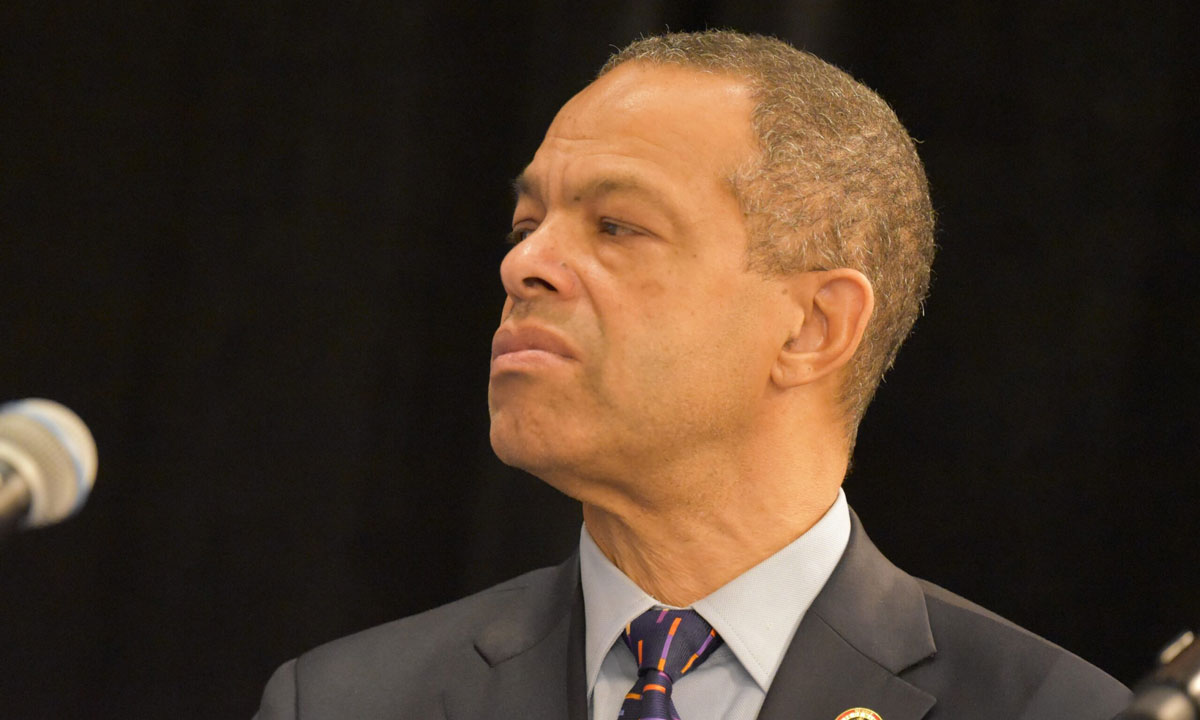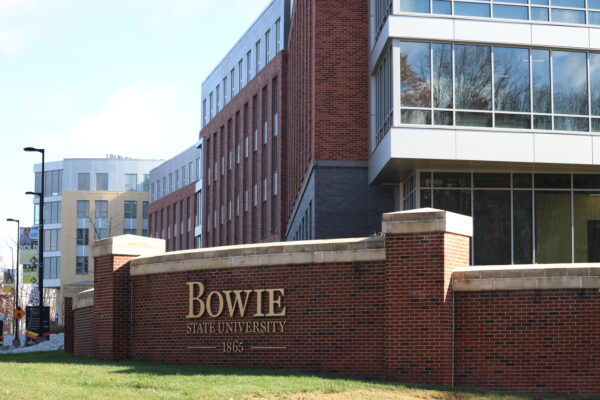Maryland Bill Proposes That Colleges and Universities Guarantee Admission
The bill is in response to the Supreme Court 2023 ruling overturning affirmative action.

Get stories like this delivered straight to your inbox. Sign up for The 74 Newsletter
Maryland will consider joining a number of states that guarantee admission to certain first-year students at one of the state’s four-year public colleges and universities.
Proposed legislation – Senate Bill 5, sponsored by Senate President Pro Tem Malcolm Augustine (D-Prince George’s) — would require institutions to adopt an admission policy and accept Maryland high school students, from a public or private school, who are in the top 10% of their class.
The 10 “constituent” higher education institutions that would be required to accept those students are those in the University System of Maryland: University of Maryland, Baltimore; University of Maryland, College Park; University of Maryland, Baltimore County; University of Maryland Eastern Shore; University of Maryland Global Campus; Bowie State University; Coppin State University; Frostburg State University; Salisbury University; Towson University; University of Baltimore. Two public schools not in the system would also be required to admit those sudents: Morgan State University and St. Mary’s College of Maryland.

The bill comes after the U.S. Supreme Court ruled last summer that affirmative action in college admission processes at Harvard University and the University of North Carolina at Chapel Hill violated the equal protection clause of the 14th Amendment. The court’s decision effectively ended consideration of race as a part of the higher education selection process.
“That made me concerned because other states that have gone to a race-neutral policy for selective schools immediately saw a drop in diversity of their student body…” Augustine said in an interview Thursday. “I want to make sure that our higher education schools are filled with the talented students from across the state that look like our state.”
There’s no current state law specifically focused on admission standards for institutions, according to the bill’s fiscal note, which analyzes the legislation. However, schools aren’t permitted to discriminate against a prospective student’s race, sexual orientation, religion and other characteristics to admit that person.
The bill mirrors a law in Texas, which went into effect more than 20 years ago.
Recently, schools in other states, including Virginia, began the guaranteed admission program, not only to diversify its student body, but to keep afloat enrollment, which shrunk during the COVID-19 pandemic.
The State Council of Higher Education for Virginia (SCHEV), a coordinating body, noted that 409,075 students were enrolled in the state’s colleges and universities in 2012. That figure decreased to nearly 369,200 in the fall of 2021.
Bob Spieldenner, a spokesman for SCHEV, said in an interview Thursday that the organization doesn’t track the number of schools that offer guaranteed enrollment. He said schools are permitted to choose whether or not to use such a program.
In Maryland, Augustine had one major supporter speak on the legislation during a bill hearing Wednesday before the Senate Education, Energy and Environment Committee: state Board of Education President Clarence Crawford.
Crawford acknowledged that not every high school reports class rank, but he said the legislation still would help increase student diversity in higher education.
“The board is encouraged by the steps taken in SB 5 because it emphasizes and signals the importance of GPA [grade point average], grades and student performance throughout high school,” he said. “We like the focus on academics. We like the focus on giving parents, students clear indicators early on that student performance is important and there are positive outcomes for achieving the best possible grades.”
Although two officials with the University of Maryland College Park support a diverse student population, they still don’t agree with the bill.
James B. Massey Jr. — director of undergraduate admissions at University of Maryland, College Park — said the legislation would eliminate the school’s admission philosophy and additional criteria in accepting prospective students.
According to Massey’s written testimony, the school uses about two dozen factors to assess an applicant, including grades in academic subjects, geographic origin, community service and recognition of special achievements.
“We employ a wholistic approach in our evaluation of applications for admission,” he said before the Senate committee Wednesday. “We admit students that have not only excelled in the classroom, but students that have gone far beyond that. We believe that merit is not a singularly defined measure to merit our students.”
Andy Clark, assistant vice chancellor for government relations with the University System of Maryland, wrote a letter of “information” to the committee. One detail in the letter highlights that the non-partisan Education Commission of the States has noted that 12 states have guaranteed admission for eligible students, but that results vary in terms of enrollment impact and demographic composition.
Clark wrote that the system respects the “ambitious” bill, but is concerned that, if the bill gets approved, it would go into effect July 1.
“Admission materials are prepared and distributed over a year in advance of when students enter, and the outreach and communication associated with changes in processes need more lead time,” Clark wrote. “We believe that a bill with so much potential impact on our state and its public institutions requires more time to understand the divergent impacts it could have.”
This story was originally published in Maryland Matters.
Get stories like these delivered straight to your inbox. Sign up for The 74 Newsletter

;)